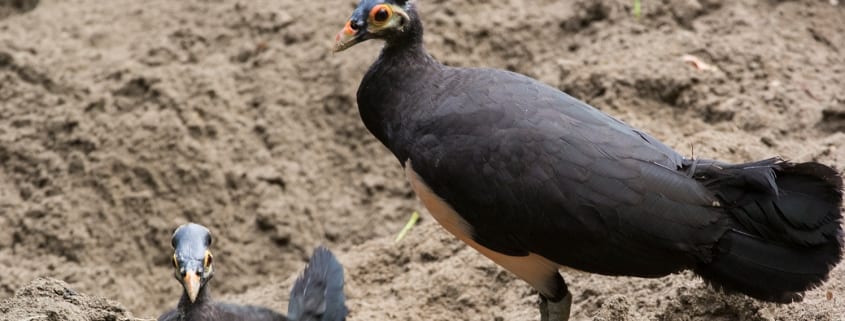New Land Purchase Safeguards Endemic Maleos in Sulawesi
A new 316-acre land purchase is now protecting nesting sites and coastal habitat for the iconic Endangered Maleo, all as part of a planned 47,328-acre protected area.
Indonesia’s Sulawesi island, located within Wallacea – an archipelago straddling the boundaries of Asia and Australia – contains a mix of biodiversity from both continents as well as its own completely unique species, including the Endangered Maleo. As one of Asia’s most iconic birds, the Maleo builds mounds to incubate its eggs through volcanic and solar-heated sand in large colonial nesting grounds, a natural spectacle that leaves the eggs exceptionally vulnerable to harvesting. While not breeding in their localized colonies, Maleos reside in lowland rainforest foothills, making deforestation an additional threat facing the endemic species. With a nearly 90 percent decline in population size since 1950, it is estimated that fewer than 5,000 of these birds remain in the wild.

Rainforest Trust’s local partner, WCS-Indonesia, has been working diligently on developing new conservation efforts to protect the Maleo and its specialized habitats in northern Sulawesi since 2001. With Rainforest Trust assistance, the local partner has protected an additional 316 acres of nesting sites and coastal habitat. This new purchase will contribute to the overall project, which will form a 47,328-acre protected area of nesting sites, coastal habitat, forest conservation area and agroforestry buffer zone. It will also form a protected corridor by linking to the 709,477-acre Bogani Nani Wartabone National Park, which is the largest nature reserve in Sulawesi and supports over 65 percent of the mammal species and 38 percent of the bird species present on the island.
“The Mataindo-Torosik corridor is one of the only remaining intact stretches of coastal forest in Sulawesi. When I visited the site this summer it was immediately clear how important the area is for threatened forest-dwelling biodiversity,” said Rainforest Trust Director of Biodiversity Conservation Dr. Bert Harris. “I am thrilled that Rainforest Trust is involved in the protection of this key site.”
Some of the other threatened species to benefit from these new protections include the Spectral Tarsier, Lowland Anoa, Gorontalo Macaque and Blue-faced Rail. Additionally, Endangered Green Turtles and Vulnerable Leatherback Sea Turtles nest on the beaches alongside the Maleos.
Thanks to our many generous friends around the world and the SAVES Challenge, this project is a success. A special thank you to Luanne Lemmer and Rainforest Trust Vice Chair Dr. Eric Veach, Chris Otahal, Charles and Jacqueline Probst, John and Fleur Rilett, Dr. Urs-Peter Stäuble and Lawrence Thompson for their leadership support.
For more information on how you can support Rainforest Trust, visit our Conservation Action Fund.




